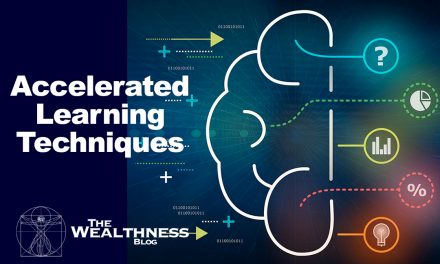You And Your Brain!
The great thing about learning is that like anything, it becomes easier with practice. The more you use your brain, the more receptive and willing it becomes. The brain, although an organ, reacts just like any muscle in the body; exercise it and it will grow stronger. Pump iron and your body grows, pump knowledge and your mind grows.
The one main difference between the brain and muscles is that brain matter does not deteriorate with age
Apparently!
Keep it stimulated and you will be rewarded with higher intelligence right into old age. If you dont end up with one of the diseases associated with ageing then it is quite possible to keep learning and retaining information indefinitely. The brain positively thrives on stimulation.
We are now entering a wonderful new time, we have stepped out of the industrial era and are moving into the information age. These days it not who you know but what you know knowledge is king!
We are developing into Cyborgs. No! Really
Our phones give us instant access to the entire library of world knowledge. Elon Musk recently took this concept further in a Joe Rogan podcast. He believes that the only thing stopping complete metamorphosis of man and machine is bandwidth.
There will come a point where the little tablet that never leaves our sides will become redundant and the body will access knowledge directly.
Its already seeping into everything. It began with our phones, then our watches, glasses, even the fridge.
The greatest problem we face in this new and exciting epoch is that you need to digest and retain such masses of information, it seems overwhelming. The other problem is that modern man/woman doesnt know how to learn effectively.
On average, it is said that we only use around 2%-10% of our full brain capacity in everyday life
It seems incredible that there are vast areas up there that are not even used. Imagine what it would be like if only we could harness just a fraction more of what we are capable of. Scientists are only now scratching the surface, the brain is like a super computer without a manual.
We are gifted with this amazing organ and we havent a clue how it really works!
I recently saw a programme grossly called World of Pain. It featured the story of a young gunshot victim. The poor lad literally lost half his head along with the brain it protected. The footage just didnt look real. I was convinced that the injury he seemed oblivious to, was computer generated.
It featured him a few months after the accident. So much of the healing had taken place but the whole side of his head was missing! His brother would find great amusement in throwing socks into the crater!
Anyway, the point is, that the surviving brain took over, it compensated for the massive trauma in other ways and the lad was able to lead a relatively normal life. Plastic surgery which filled the hole with silicon and covered it with the remaining scalp, helped alleviate the unwanted stares.
Its like someone who loses their sight. The brain will compensate by intensifying the hearing and spatial awareness wonderful and totally fascinating!
Yes, the brain is an awesome organ indeed!
I lived in Greece for many years and had a Swedish friend with a Greek husband. They had a daughter. Now, the Swedish girl spoke Greek, and the Greek husband spoke Swedish, and they both spoke English.
Infuriatingly, they would slip from one language to the next and the funny thing was that the daughter would pick it up. At one stage in her development the little girl had a mixed up language all of her own which not even the parents understood! Eventually it sorted itself out and the girl is now fluent in several languages.
The point is, that because in the early stages learning is fun and interactive, children dont make a conscious effort to retain information. The brain is happily and effortlessly working away behind the scenes, building a library of epic proportion.
My young son is into his dinosaurs at the moment. Hes only three and comes out with the most incredible words and names, species even I find hard to pronounce. He learns this stuff because he loves dinosaurs and beasts. The recall of the difficult names are a bi-product of the playing experience, they are registered effortlessly because of the total learning adventure.
I also have a young daughter developing into speaking age. Although she isnt old enough to have discovered a passion yet except for her mom and dad!
It will be an awful lot harder for her to learn creatures such as Tyrannosaurus, Gastornis and Lepticidium because theyre not what shes into. The learning experience wont be totally engrossing, shell have to force herself to remember daft old reptiles that she has no interest in. Shell struggle in the dangerous world of the Spinosaurous.
And if I was to try to teach her using conventional methods, blackboard, pointer and repetition Im sure shell just end up hating the bloody creatures!
You are already a great learner, just look at what youve achieved in your life.
Learning can still be fun!
Look at what a laugh it is when learning to drive a car (if you ever have!!!). A totally alien concept for the body, but because the results at the end are so exhilarating and the learning process is such a scream, you dont notice the information and muscle memory being assimilated, logged and stored.
The problem for you right now is that many of your past experiences with learning have taught you that trolling through information and trying to retain it, is damn hard work, dull, and only to be attempted a last resort.
Who on earth taught you that learning is boring?
Your school teachers, thats who!
You were doing great until you started attending those boring lectures and were forced to sit still for hours while Mr Monotone droned on about algebra and left handed, unilateral, tri-squares unless you happen to like algebra and left handed, unilateral, tri-squares.
You were then sent home with piles of homework and werent allowed to do the fun things until youd finished. In the vast majority of cases your main learning experiences and methods for retaining information are from school teachers who, as I know now, didnt know better!
They tried to teach you the way they thought you wanted to learn. The thing is they forgot to ask you! You would have had favorite teachers and others you hated and would not have done well in their classes.
Only now are those in charge of our childrens education understanding that we all learn in different ways.
But there is something you probably werent aware of as Mr Boring driveled on Mr Boring would have had a reasonable record of success. Some students, around 30%, would have actually enjoyed his style of delivery!
This is because his teaching style actually suited the learning style of those students its the reaming 70% that were the ones he couldnt communicate with.
If you are one of the rare exceptions to the rule and attended a cutting edge, forward thinking school where the learning experience was enjoyable, do you understand why it was so?
Although things are changing and accelerated learning techniques are not new, the sad fact is that most schools are slow to change. Most are still banging away with methods that should have gone out with the Victorians. (If you dont know who the Victorians were I suggest that once youve got to grips with fun learning you go and read up on your history!!!)
But even if schools do introduce these radical teaching techniques its no use to you is it?
Postscript
When I first wrote this section about 6 years ago
it was unheard of for schools to subscribe to the
notion that we are all different. I have noticed
recently that suddenly schools are using many of
the learning techniques I outline. Shame they
werent in use when we were kids eh! learning
would have been so much more enriching.
Everyone is different and we all have our own unique way of learning.
Discover how your mind likes to receive its information, then supply it in that format, and youre on your way.
The good news is that accelerated learning does not require you to change in any way. All you need to do is what you are doing now, but better and more often. You need to expand your current capabilities.
On average we remember:
- 20% of what we read
- 30% of what we hear
- 40% of what we see
- 50% of what we say
- 60% of what we do
- and 90% of what we see, hear, say and do.
Therefore the secret of successful retention is to combine seeing, hearing, saying and doing and make it fun.
In order to show you what I mean, I would like you to take a little test. We are going to learn to count to ten in Japanese!
English | Japanese
1 ichi
2 ni
3 san
4 shi
5 go
6 roco
7 shisci
8 hachi
9 kyu
10 ju
If I was to leave you with that list and ask you to learn it, how would you go about it?
Each individual would have their own method and Ill bet most are dull and boring. When learning becomes dull, retention becomes much harder, even if you would consciously like to remember whats being read.
We are aiming to stimulate as many senses as possible through an enhanced learning EXPERIENCE. The bigger the event, the better chance you have of recall.
Now try learning Japanese my way:
What on earth are you going on about? You ask.
Simple! We have just built a very clear, vivid picture which you will find extremely difficult to forget. I guarantee that in several days from now, you will be able to recall that picture with absolute clarity and, in doing so you will automatically recall how to count to ten in Japanese.
Read this out loud and visualize the scene:
Its a scorching summers day. The sun is is blazing through your window. If youre not of the male sex then you are for this experiment an odd thing eh and it will make the vision even more memorable!
You get an itchy (1.) knee (2.) and bend over to scratch it. As you stand up you look out of the window, you have to squint because the sun (3.) is so bright. A sexy woman she (4.) wiggles by.
You are spotted by your wife eying up the girl and you can see that she is very angry. You leave the room go (5.). You have to duck because in her rage your wife has hurled a rock over (6.) your head. You get outside and the door is slammed behind you. The itch returns, your knee its-itchy (7.) again so you bend over to scratch it.
As you do you spot a hatchet (8.) You pick it up and break down the door. As it gives way you are confronted by your tearful spouse at which point you ask coo jew (9.10.) forgive me?
I dont mean to sound sexist but this graphically illustrates that by combining all the senses, learning becomes easier and more fun. To the females among you either put yourself in the position of the man (God forbid!!) or build a new picture.
You will be building pictures as a matter of course anyway. It is much easier to recall your own pictures because of the extra effort required to build them in the first place. Research has also shown that the more contrived and bizarre (in a humorous way) the story, the better it seems to stick.
In this example we can feel the heat of the sun, the anger of the wife, desire (the woman!!!) and the joy of being forgiven. If we wanted to make this little scene even more unforgettable we would act it out. Bend over to relieve the scratch, squint your eyes etc. This play acting is reserved for the most important things, you dont want to be going through a mini play every time you want to remember something!
We have just established that the dull, boring task of learning Japanese can be made fun and enjoyable, and in doing so the main points are easily passed on to our long term memory.
Over the next few weeks you need to practice this visualization and picture building. Get into the habit of creating pictures for tasks you wish to remember.
Ironically, the more bizarre these thoughts the deeper they will become inscribed and more easily recalled.
This is why in the example I have given the females an even more weird picture as theyve had to become a man!
Heres another example:
How many stomachs does a cow have?
The answer, if you didnt know already is four.
Not a particularly relevant fact to remember for any length of time is it?
Now picture that black spotted, cow stumbling around its field, tripping over its own feet because a stomach is tied to each one!
You wont forget that in a hurry will you?










